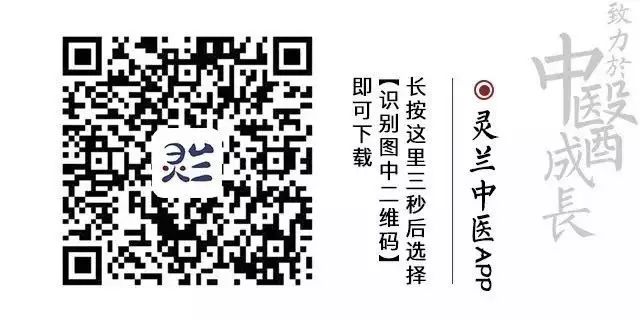
TCM Book Club Issue 1315
Daily updates to accompany the growth of TCM practitioners
IIntroduction:Ancient wisdom states: observe color and pulse, first distinguish Yin and Yang. This highlights the importance of identifying the true nature of Yin and Yang in treating diseases. However, in practice, there are often cases of true cold masquerading as heat and true heat masquerading as cold, leaving practitioners perplexed. Renowned physician Zheng Qinan from Sichuan wrote in his book “True Transmission of Medical Principles” that “Individuals with Yang deficiency may appear similar to those with excess heat; this method of differentiation is infallible…” Is this true or not? Readers may decide for themselves. (Editor/Huang Shan)

Identifying All Symptoms of Yang Deficiency
Author/Zheng Qinan
For individuals with Yang deficiency, Yin energy must naturally be abundant.
Note: The term Yin energy refers to an abundance of water, which is equivalent to blood. An excess of blood leads to a deficiency of Qi, which is the root cause of Yang deficiency.
Externally, all symptoms of heat may manifest.
Note: This heat is termed “deficient heat,” which is different from “excess heat.” Excess heat arises from external pathogens entering the Yang channels, causing stagnation. Deficient heat occurs when Yin energy rises excessively; Yin refers to water, and Qi refers to the innate Yang within water. Therefore, it is called deficient heat. When water Qi flows downward, it is normal; when it flows upward, it is abnormal, resulting from the weakness of the sovereign fire, which cannot contain it, leading to illness.
It closely resembles excess heat, and this method of differentiation is infallible. In cases of Yang deficiency, the individual will typically exhibit a pale blue-white complexion, lack of spirit in the lips and mouth, fatigue with closed eyes, a low voice, shortness of breath, reluctance to speak, a heavy body sensitive to cold, expectoration of clear fluid, lack of appetite, a tongue that is blue and slippery or black and moist, pale yellow and moist, with abundant saliva, and a disinterest in drinking water, preferring hot soup. Bowel movements may be frequent and loose, with a pulse that is floating, empty, fine, and weak, spontaneous sweating, cold extremities, blue nails, abdominal pain with a retracted abdomen, and various symptoms that are the true manifestations of Yang deficiency. Treatment should focus on tonifying Yang and suppressing Yin.
Note: The term “tonifying Yang” encompasses the upper, middle, and lower aspects. For example, Gui Zhi (Cinnamon Twig), Ren Shen (Ginseng), and Huang Qi (Astragalus) tonify the upper Yang; Jiang (Ginger), Dou Kou (Cardamom), and Xiang Sha (Amomum) tonify the middle Yang; Tian Xiong (Aconite), Fu Zi (Prepared Aconite), and Liu Huang (Sulfur) tonify the lower Yang.
However, there are also cases that closely resemble excess heat, which should be noted.
Yang deficiency symptoms may include a red face resembling excess heat.
Note: This indicates an overflow of original Yang, and the above symptoms can be referenced.
There may be a pulse that is extremely large and firm like a stone.
Note: This indicates a violent loss of original Yang, and the above symptoms can be referenced.
There may be a high fever.
Note: This point has three aspects: one is that original Yang overflows, and the body must not be in pain or thirsty, with no external pathogens to reference. The second is that postpartum women may experience sudden blood deficiency, with Yang having no support. The third is that vomiting blood damages Yin, and original Qi has no foundation; vomiting causes Qi to move outward, and original Qi also moves outward.
There may be bleeding from the gums.
Note: This indicates that Yang Qi is insufficient to control blood, leading to an overflow of excess blood.
There may be shortness of breath, wheezing, and coughing with phlegm.
Note: The lungs are the organ of clear and deficient energy, and cannot tolerate even a slight amount of Yin energy. Currently, the heart and lung Yang are insufficient, thus unable to control the rising Yin energy. Yin energy refers to kidney water and kidney fire. This point indicates internal injury.
There may be difficulty with urination and defecation.
Note: Yang is insufficient to transform Yin, and the above symptoms can be referenced. This section briefly outlines a few points; for more details, refer to the Q&A on Yang deficiency.
|
I Copyright Statement
I Submission Email [email protected] |
[Comprehensive Search] Clarification, [Selected Articles] Teaching, [Classic Recitations] Transmission, [Clinical References] Practical. Welcome to download the Linglan TCM App to upgrade your TCM “equipment.” Please long-press to recognize the QR code below or click the lower left corner “Read the original text” to download directly, or search for [Linglan TCM] in major app stores.

